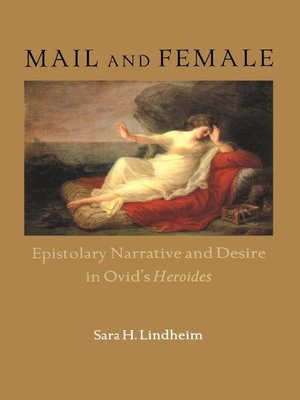Mail and Female
ebook ∣ Epistolary Narrative and Desire in Ovid's Heroides · Wisconsin Studies in Classics
By Sara H. Lindheim

Sign up to save your library
With an OverDrive account, you can save your favorite libraries for at-a-glance information about availability. Find out more about OverDrive accounts.
Find this title in Libby, the library reading app by OverDrive.



Search for a digital library with this title
Title found at these libraries:
| Library Name | Distance |
|---|---|
| Loading... |
In the Heroides, the Roman poet Ovid wittily plucks fifteen abandoned heroines from ancient myth and literature and creates the fiction that each woman writes a letter to the hero who left her behind. But in giving voice to these heroines, is Ovid writing like a woman, or writing "Woman" like a man?
Using feminist and psychoanalytic approaches to examine the "female voice" in the Heroides, Sara H. Lindheim closely reads these fictive letters in which the women seemingly tell their own stories. She points out that in Ovid's verse epistles all the women represent themselves in a strikingly similar and disjointed fashion. Lindheim turns to Lacanian theory of desire to explain these curious and hauntingly repetitive representations of the heroines in the "female voice." Lindheim's approach illuminates what these poems reveal about both masculine and feminine constructions of the feminine
Using feminist and psychoanalytic approaches to examine the "female voice" in the Heroides, Sara H. Lindheim closely reads these fictive letters in which the women seemingly tell their own stories. She points out that in Ovid's verse epistles all the women represent themselves in a strikingly similar and disjointed fashion. Lindheim turns to Lacanian theory of desire to explain these curious and hauntingly repetitive representations of the heroines in the "female voice." Lindheim's approach illuminates what these poems reveal about both masculine and feminine constructions of the feminine







